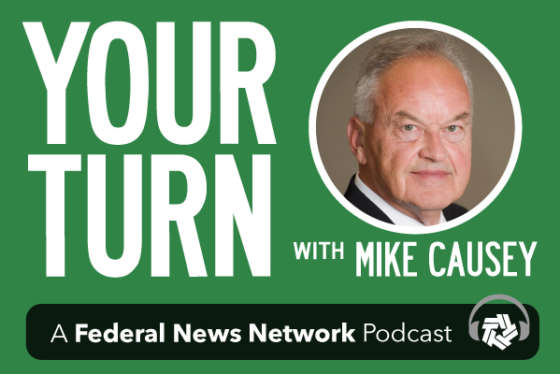
How long will the coronavirus infection eat away at your retirement portfolio?
If federal workers and retirees found themselves sleepwalking through the last 11 years of Wall Street’s bull market, retirement benefits specialist Tammy Fla...
Best listening experience is on Chrome, Firefox or Safari. Subscribe to Federal Drive’s daily audio interviews on Apple Podcasts or PodcastOne.
If federal workers and retirees found themselves sleepwalking through the last 11 years of Wall Street’s bull market, retirement benefits specialist Tammy Flanagan said the pandemic-driven stock-market volatility has been “a wake-up call.”
Flanagan, who has been providing retirement planning assistance to federal employees since 1985, talked about the right time to retire, Medicare and ways to manage one’s Thrift Savings Plan (TSP).
“Retirement, for the most part, is a voluntary action,” she said on Your Turn with Mike Causey. “So if you get cold feet, up until the day of your final separation … you can pull your application, unless your agency has some reason to not allow it. But generally speaking, you can pull it out.”
The stock market lost about 30% of its value during the darkest days of the 2008 recession. Flanagan says the market’s comeback is something we could learn from.
“People who were strictly in (TSP’s) C, S, and I — or the stock-market index funds — had a lot of heartburn during that period,” Flanagan said. “And those who stayed the course and stayed in C, S, and I funds throughout that period, saw a great recovery that happened afterwards.”
Flanagan believes the current economic instability “is just a temporary thing.”
“I find that most people are not panicking, but they are a little concerned,” she said. “And the ones who are really the most worried are the ones who say, ‘Can I still pull the plug, I’m not retiring until the end of March … or the early summer period.’”
Flanagan said any decision like that depends on your specific situation.
“If you weren’t securely positioned for retirement before this happened, then … this is a good wake up call to say that maybe it is too early to retire and you have the time to do that,” she said.
But for others, it’s not as easy as waiting.
“Those who are already in retirement are probably pulling up their pants a little higher, making sure they don’t spend too quickly right now, trying to shore up their loose ends,” she said.
Flanagan said the number one issue that keeps coming up with her clients is Medicare Part B.
“It didn’t use to be a big deal, because Part B used to be a fairly reasonable-priced additional coverage to add on for retirees,” she said.
Now, she said, Part B coverage is more complicated to figure out and more expensive.
Flanagan also offered up a list of 11 questions you should ask yourself if you are going to retire this year. They ranged in topic from potential problems with changing addresses to applying for certain federal programs, with buildings shutting their doors and employees working from home.
“All of these things are still operational during this pandemic,” she said. “So you can still do business with your federal agencies.”
Finally, Flanagan addressed the need for federal employees and retirees to check the websites of their health plans.
“They have a whole page on the virus and what they’re doing,” she said. “Some of them are waiving your out-of-pocket expenses … some of them are letting you fill your prescriptions, even though they’re not ready to be refilled at this time … and they’re encouraging you to get 90 days of medication.”
So definitely take a look at the websites to “find out what’s going on and what they’re doing for you during this time,” she said.
Copyright © 2024 Federal News Network. All rights reserved. This website is not intended for users located within the European Economic Area.
Peter Musurlian is a producer at Federal News Network.
Follow @PMusurlianWFED




